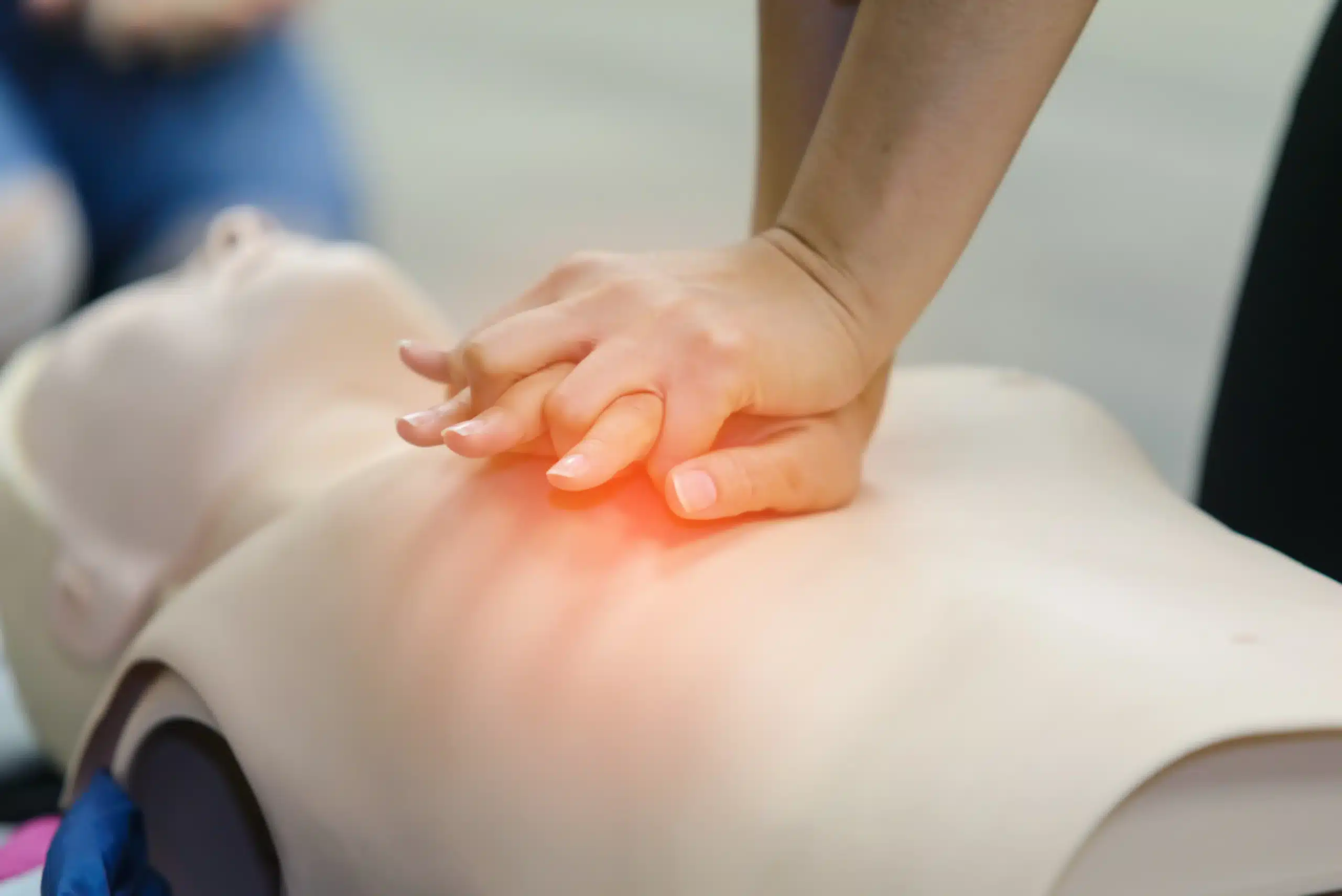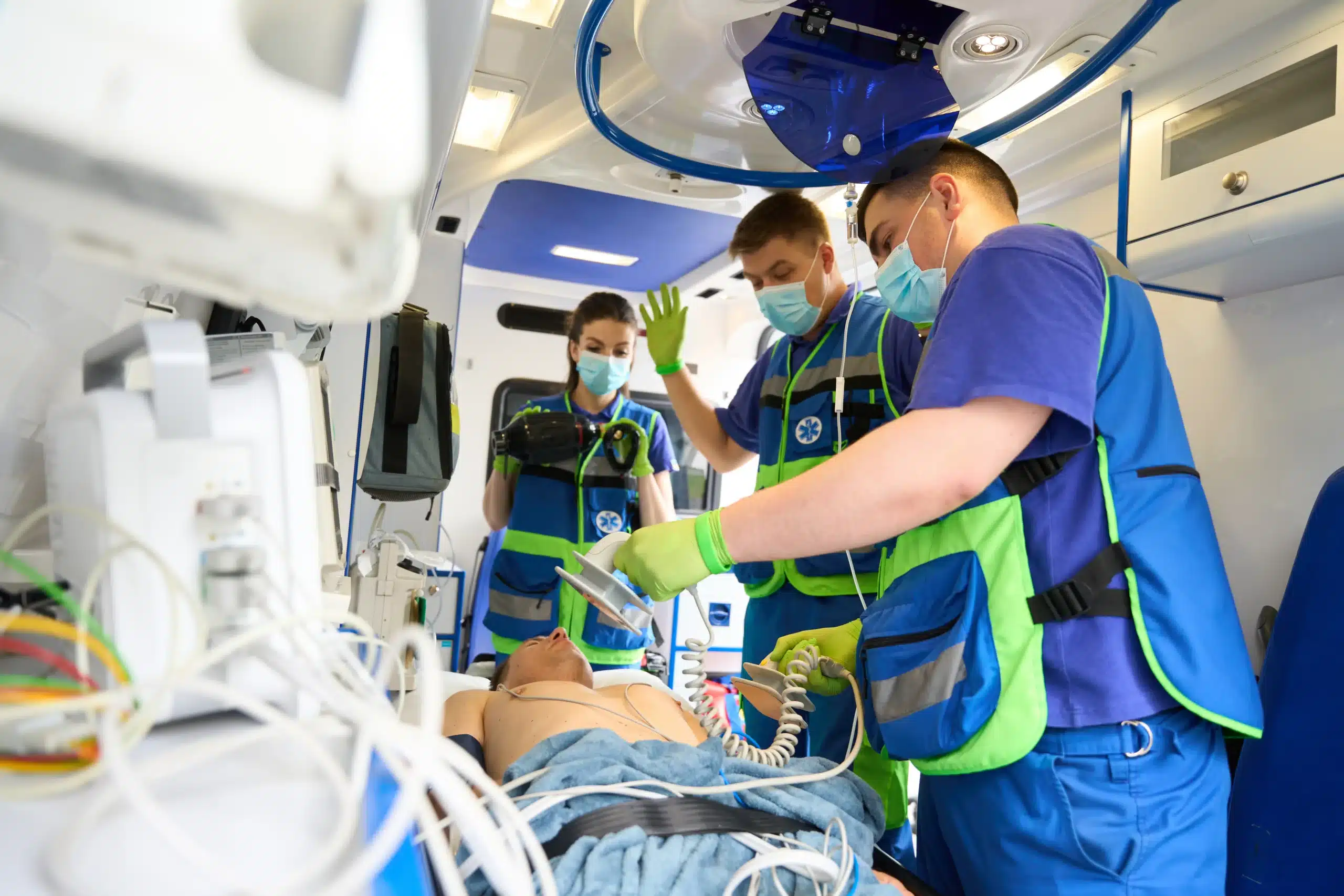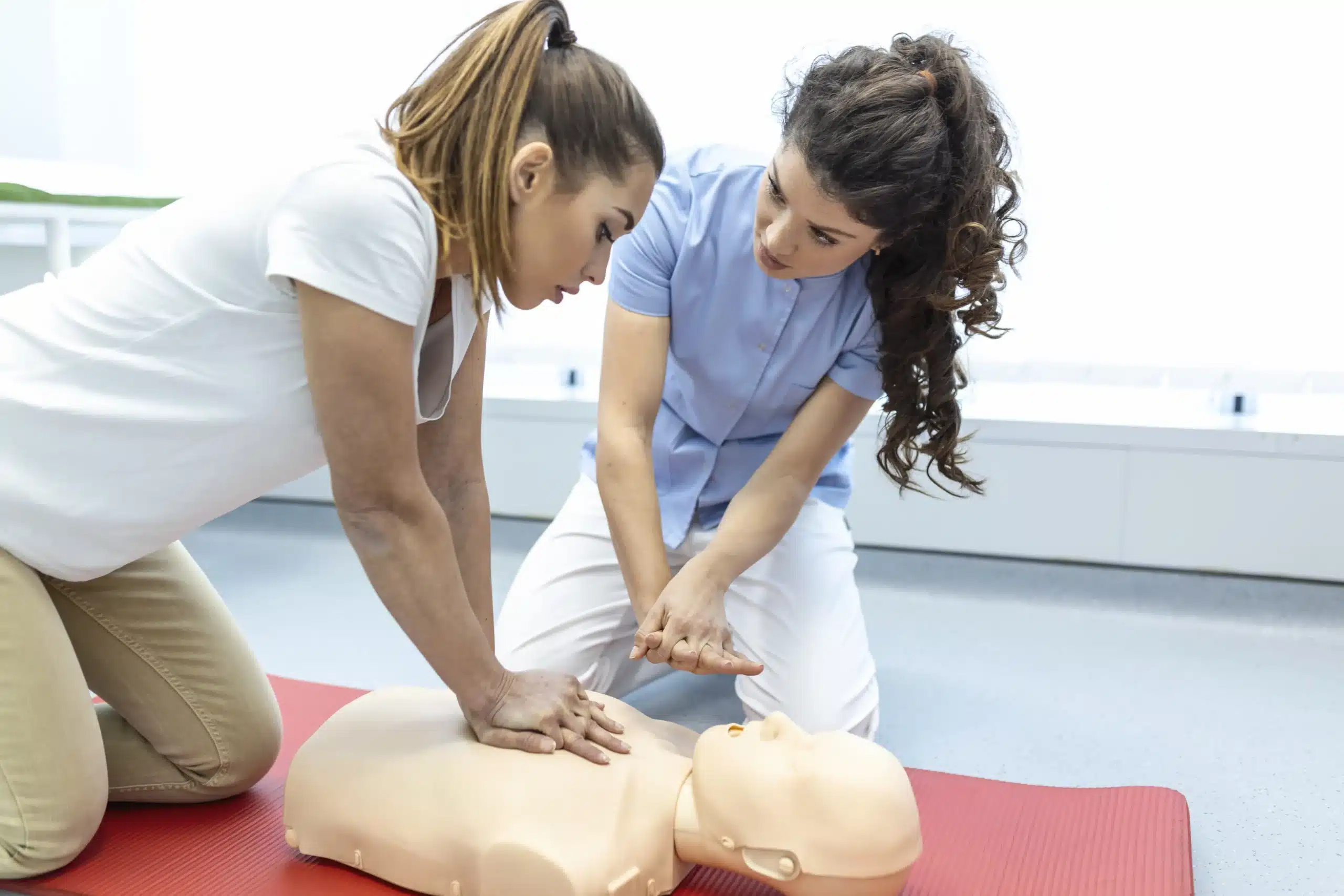Surviving a cardiac arrest can feel like a second chance at life, but for many, the experience leaves behind more than just physical challenges. The psychological impact of being resuscitated with CPR can be profound, often triggering anxiety, depression, or post-traumatic stress disorder (PTSD). Recognizing and addressing these emotional wounds is a critical part of the healing process.
This blog will explore the psychological recovery process for CPR survivors. From understanding the mental health challenges to actionable coping strategies and the importance of seeking professional help, we’ll cover everything you need to know to support yourself or a loved one on this path to recovery.
What You’ll Learn in This Blog:
- The immediate and long-term psychological impacts following CPR.
- Strategies survivors and families can use to foster healing and resilience.
- The role of professional help in addressing trauma and emotional well-being.
Understanding the Psychological Impact of CPR
CPR is nothing short of life-saving, but it comes with an emotional aftermath that many aren’t prepared for. Surviving such a traumatic event often brings a mix of relief, gratitude, and confusion—not to mention a challenging adjustment period. For some, this emotional toll lasts weeks or months. For others, it lingers indefinitely if left unaddressed.
Immediate Emotional Responses
Fear, confusion, and anxiety are common for CPR survivors. The trauma of a near-death experience and the hazy memory of resuscitation can leave individuals feeling disoriented and overwhelmed. Flashbacks or hypervigilance are also typical within the first few weeks, symptoms often linked to Acute Stress Disorder (ASD).
Did You Know? According to the Resuscitation Journal, rates of psychological distress following cardiac arrest—including depression, anxiety, and PTSD—can range between 13% and 61%.
Long-Term Effects on Mental Health
For some, the psychological effects of surviving CPR extend far beyond the initial recovery phase. Survivors may grapple with conditions such as PTSD, depression, or survivor’s guilt. They may also experience significant shifts in their worldview, often reflecting deeply on questions about mortality, purpose, or the fragility of life.
Symptoms of long-term mental health effects might include:
- Difficulty sleeping due to nightmares or racing thoughts.
- Feeling detached or disconnected from loved ones.
- Reliving the event through intrusive thoughts or flashbacks.
- Experiencing persistent sadness or low energy.
Coping Strategies for Survivors and Families
Fortunately, there is a range of strategies to support psychological recovery after CPR. Here’s how survivors and their families can foster resilience and regain a sense of control over their lives:
Mindfulness-Based Techniques
Stress and anxiety can take a significant toll on the mind and body. Mindfulness-based practices can help survivors stay grounded, ease emotional distress, and regain clarity.
- Mindfulness Meditation: Start with just 10 minutes a day to cultivate awareness and acceptance of your feelings. Apps like Calm or Headspace can guide beginners through the process.
- Journaling: Writing about emotions, fears, or gratitude can create clarity and catharsis. Try journaling for five minutes each morning or before bed.
- Yoga or Breathing Exercises: Gentle yoga stretches or deep-breathing exercises can reduce tension and promote relaxation.
Example Exercise: Try the 4-7-8 breathing method. Breathe in for 4 seconds, hold your breath for 7 seconds, and exhale for 8 seconds. Repeat this cycle three times to calm your mind and body.
The Importance of Support Networks
Survivors and their families don’t need to go through this recovery process alone. A strong sense of community can make a world of difference.
- Lean on Family and Friends: Sharing your feelings with trusted loved ones can foster understanding and reduce feelings of isolation.
- Join Support Groups: Survivor-specific communities, like those facilitated by the American Heart Association, allow individuals to share experiences and advice with others who’ve been through similar situations.
Lifestyle Adjustments
Creating healthy, sustainable routines is essential for holistic recovery.
- Physical Activity: Engage in light or moderate exercise, such as daily walks or stretching, to boost endorphins and reduce stress. Consult your doctor first to ensure your fitness routine is safe for your specific cardiac needs.
- Balanced Nutrition: A diet high in whole foods, lean proteins, and healthy fats can benefit both physical and mental well-being.
- Quality Sleep: Aim for seven to eight hours of restorative sleep each night to help your mind and body heal.
Seeking Professional Help
If emotional challenges persist, professional support is crucial. Psychologists, therapists, and counselors specializing in trauma or health-related stress can significantly improve recovery outcomes.
When to Seek Help
- If flashbacks, anxiety, or sadness interfere with daily life more than two weeks post-incident.
- If survivors or their families experience feelings of hopelessness, irritability, or detachment.
Recommended Therapies for Trauma Recovery:
- Cognitive Behavioral Therapy (CBT): Helps individuals reframe negative thoughts and develop healthier coping mechanisms.
- Eye Movement Desensitization and Reprocessing (EMDR): Often used for PTSD, EMDR involves processing traumatic memories to reduce their emotional impact.
When selecting a therapist, look for one with experience in trauma or health-related psychology and credentials from trusted associations such as the American Psychological Association.
Why Psychological Recovery is Essential
Addressing the mental health challenges of CPR survivors is not only vital for emotional well-being but also for physical recovery. Learning to manage stress through therapy or mindfulness can reduce strain on the heart and improve overall rehabilitation outcomes.
By prioritizing psychological recovery, survivors can transform a traumatic experience into an avenue for growth, resilience, and renewed appreciation for life.
Want to Do Your Part?
Support CPR survivors and their communities. Consider gaining CPR certification through a trusted provider like Safety Training Seminars. They offer American Heart Association (AHA)-certified courses in San Rafael, CA, including:
- CPR and First Aid
- Basic Life Support (BLS)
- Advanced Cardiovascular Life Support (ACLS)
- Pediatric Advanced Life Support (PALS)
CPR training not only saves lives but also helps mitigate the physical and psychological challenges for survivors.
Finding Strength in Recovery
Every CPR survivor has their own unique story of courage and resilience. While psychological recovery requires time and effort, it’s a vital step toward truly healing. By leaning on strategies like mindfulness, social support, and professional help, survivors can regain control of their lives and find new meaning in their experiences.
If this article resonated with you, please share it with someone who might benefit. Together, we can raise awareness about the importance of psychological recovery for CPR survivors and empower those in need to seek the support they deserve.






